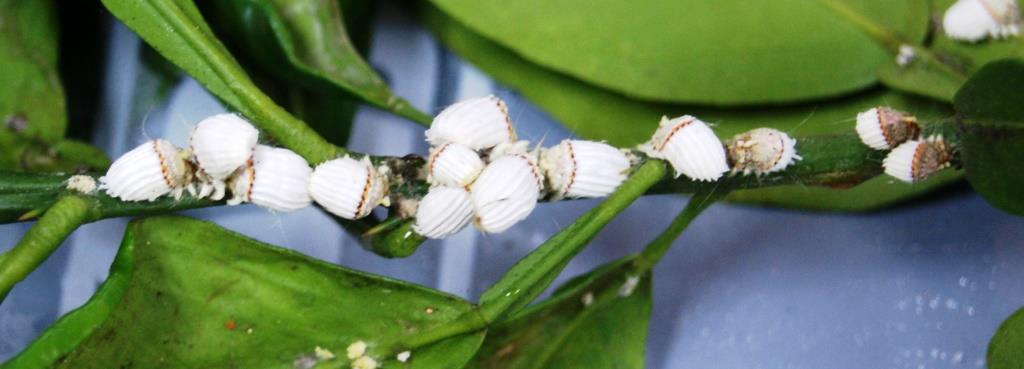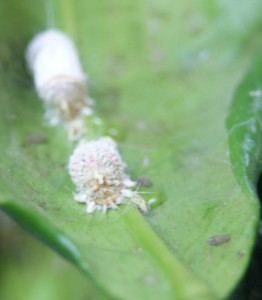
Cottony Cushion Scale (Icerya purchasi) is a serious pest on citrus and has already been observed at multiple sites in the Florida Panhandle.
The Satsuma Tangerine, Citrus unshiu, is currently the major citrus of economic importance for fruit production in North Florida. Now is the time to act to prevent infestations of Cottony Cushion Scale (Icerya purchasi) since the weather is warming and this pest insect has already been observed at multiple sites in the Florida Panhandle.
This scale species often reduces tree vitality by ingesting sap that would otherwise be used by the tree for growth and fruit production. It may also cause premature fruit drop and defoliation. A secondary pest that may occur as result of Cottony Cushion Scale is Sooty Mold. Sooty Mold lives off of the surgery secretions of the scale and can cause citrus leaves to look black and eventually drop.
The good news is that Cottony Cushion Scale is relatively easy to control when managed in winter or early in the spring growing season. From October through early May growers should use Horticultural Oil to control scale, particularly horticultural oil containing petroleum products. These products deprive scale insects of oxygen. This will smother them to death.
Applications should be timed correctly since horticultural oils will burn plants once outdoor temperatures reach 94 °F. A good rule of thumb to minimize leaf damage is to apply horticultural oil on cool and cloudy days. Always consult the label of each individual product before applying and never apply more than the recommended amount. This last statement is especially crucial for horticultural oil applications, since increased rates are highly likely to damage plants.
For more information, please consult this UF / IFAS publication on Cottony Cushion Scale and the Citrus Pest Management Guide for Soft Bodied Insects.
- Steps to Remedy Non-Productive Pecan Orchards - June 30, 2023
- If Not Disease, Then What? Abiotic Vegetable Disorders - June 24, 2022
- Dormant Sprays Protect Fruit Trees from Future Insects and Diseases - January 28, 2022

